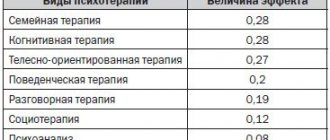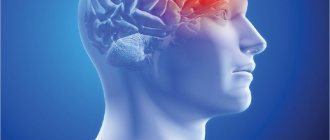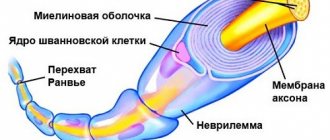Who should help you: a neurologist or a psychologist? Psychiatrist or psychotherapist? You can get confused. And how can you avoid, God forbid, not being registered?
And then there are: psychoneurological clinics, psychiatric hospitals, neurosis clinics, psychosomatics, PND (psychoneurological dispensary), ND (narcological dispensary), neurological centers, drug treatment hospitals, crisis department and department of psychosomatic disorders, psychotherapeutic clinics, rehabilitation medicine centers. You can break your head!
Let's figure out where and who to contact.
New in the treatment of nervous disorders abroad in women, men and children
Psychotherapy – thanks to group or personal consultations with a doctor, it is possible to develop competent behavior in circumstances of stress, overcome manifestations of disorders, change attitudes towards oneself, and the general state of affairs.
Relaxation techniques help reduce muscle tension, provide an opportunity to relax, and get rid of constant thoughts. Such techniques include the possibility of meditation, yoga, massage, certain types of treatment with mineral waters, color and aromatherapy.
Physical activity, a healthy lifestyle - the role of these components in the treatment of nervous disorders in women and men is only growing. Sports exercises improve mood, promote the quality of the cardiovascular system (significantly affected in nervous disorders), increase the production of serotonin (a neurotransmitter necessary for the quality of functioning of the brain), and improve sleep.
In addition, for such problems, as in the treatment of mental disorders, they resort to drug treatment, using in particular:
- Drugs with additional sedative effects. Many signs of a nervous disorder—head pain, rapid heartbeat—can be relieved with medications designed to solve a specific problem.
- Medicines based on plant extracts (valerian, motherwort, lemon balm, chamomile, etc.).
- Complexes of vitamins and minerals. In a stressful state, vitamins B, E, calcium, and magnesium are especially important.
- Homeopathic medicines, dietary supplements - most often they contain extracts of invigorating (ginseng) or calming (chamomile, lemon balm) effects.
- Prescription drugs are powerful drugs, they are prescribed by a doctor, and they are also taken only under medical supervision: antidepressants, antipsychotics, tranquilizers, which have a variety of side effects and a number of contraindications.
- Non-prescription drugs that have a complex therapeutic effect, improve sleep, memory, performance, mood, and relieve anxiety.
Neuroses and neurasthenia
Neurosis can be caused by hereditary predisposition, constant physical activity, emotional instability, and lack of free time to rest. Symptoms:
- anxiety, fatigue;
- excessive emotionality;
- sudden mood swings;
- absent-mindedness, forgetfulness;
- sleep problems.
In this case, the patient will need psychocorrection and take medications prescribed by the doctor. Yoga or handicrafts can help you relax. For prevention purposes, it is worth giving up bad habits, playing sports, and taking walks in the fresh air.
Neurasthenia manifests itself as:
- excessive nervousness;
- headaches (mainly in the evening);
- dizziness (when weather conditions change, physical activity).
As a result, problems may arise from all organs:
- heartache;
- increased blood pressure;
- tachycardia;
- disruption of the gastrointestinal tract;
- heartburn;
- decreased libido.
To eliminate the first symptoms, it is worth reducing excessive work activity, devoting time to your favorite activity, and adjusting your daily routine.
In advanced stages, hospital treatment and sedative medications will be required. In some cases, the help of a psychotherapist is necessary.
The secret of effective treatment of nervous disorders in Israel
Israeli neurology, thanks to advanced developments in the medical field, provides the most effective treatment for many diseases that were previously considered incurable. Specialists with extensive experience and deep practical experience and knowledge are able to analyze patient complaints to the smallest detail, which makes it possible to promptly detect even serious malfunctions in the functioning of the nervous system. Thus, the staff of the Renaissance drug treatment clinic conducts a full examination using the most advanced equipment. Innovative technologies help make an accurate diagnosis and prescribe effective treatments.
Each stage, as in the treatment of drug addiction in Israel, occurs under the strict supervision of a doctor who is personally assigned to each patient. Thanks to this, treatment can be adjusted at any time, which increases efficiency and speeds up the patient’s recovery.
Main symptoms of a nervous breakdown
- Irregular heartbeat - you may feel that something is wrong with your heart. You think that you are seriously ill, but examinations are unlikely to convincingly confirm this.
- muscle tension/soreness
- sticky hands, excessive sweating
- dizziness or unsteadiness
- trembling and internal shaking are the most uncomfortable symptoms of a nervous breakdown because you worry that people might notice it
- upset stomach and intestines
- increased fatigue - energy quickly runs out and fatigue sets in, all energy is used in an attempt to cope with the crisis.
- exhaustion, weight loss
Common mental symptoms
- panic, fears and phobias
- inability to cope with the material (feeling of decreased intelligence, feeling of “dullness”)
- sexual problems - loss of libido, libido, impotence
- sleep disturbances—not being able to fall asleep, waking up frequently in the middle of the night, not being able to go back to sleep, thoughts that keep you from falling asleep
- alienation from loved ones - patients sometimes describe this as “living in a bubble.”
- Character/Personality changes - Irritability or outbursts of anger, strange behavior, loss of sense of identity, depersonalization.
- Hypochondria - It seems that health is in danger, and it is necessary to look for different doctors to treat imaginary diseases. They even agree to operations, but do not go to a psychotherapist.
- difficulty concentrating, lack of perseverance
- depression, neurotic conditions, increased anxiety levels
These symptoms often make a person think they are going crazy. That’s why it’s so important to start treating a nervous breakdown as early as possible.
How to overcome a nervous breakdown and undergo treatment in Moscow
When a breakdown occurs, the best way out of it for the “breakdown” person is to experience his situation completely, that is, there is no need to push emotions inside, suppressing them within himself. It’s better to take them out, because periodic discharge is simply necessary. If you feel that a breakdown is close, but it hasn’t happened yet, try to switch to something and get distracted. The guideline here could be the following: the higher the tension inside, the more powerful the way to escape should be.
If you have any guesses about what caused it, try to eliminate or at least weaken such a source of tension. In situations where you do not know what the cause of the situation is, it is recommended to seek support from an experienced psychotherapist. The problem is that people clearly understand when treatment for drug addiction or other pathological addictions is required, and do not attach much importance to disorders of this type and psychological aspects in general. The big mistake of those who are faced with a situation of this kind is to ignore the problem itself in the expectation that everything will go away on its own, but this is not the case. Even if a nervous breakdown does not leave any mental consequences, it can still cause significant damage to health. That is why, with such a problem, there is no need to engage in independent treatment; it is better to seek help from a specialist. In Moscow, the best place to help you with nervous disorders and breakdowns is at the Renaissance RC, which is a branch of an international network of clinics.
Can you predict that I'm about to have a nervous breakdown? Or could it happen suddenly?
– I always encourage people to be aware of their condition. After all, then they can quickly understand what is happening to them and react more adequately, helping themselves to avoid unfolding painful dynamics.
Metaphorically, if I can clearly see the terrain under my feet and check the map, I can navigate it more safely and get to the desired point. In such a situation, I don’t need to predict; I need to make adequate and timely decisions. If by “prediction” we mean recognition, then we check the symptoms described above.
Sometimes a nervous breakdown may feel “sudden”, but it is always preceded by some external and reciprocal internal event or even a series of events. It’s just that a person might not realize it and not think about it. Some of the experiences were hidden from his consciousness and processed on a subconscious level, and when it became impossible to ignore or repress the information, obvious mental or physical phenomena appeared.
One of my patients cared for her bedridden mother-in-law for a very long time and with great difficulty. She was very tired and could not share it with anyone else until she eventually came down with depression herself.
Compare prices for treatment of nervous disorders in the best clinics
As in the treatment of addictions, the variation in prices between clinics in different countries and even cities is quite significant:
- Thus, a consultation with a psychotherapist or neurologist in St. Petersburg will cost approximately 1000-1500 rubles;
- in Moscow, prices for a similar service usually start at 2,000 rubles.
In Israel, the cost of a consultation will range from $200-400, however, the quality of treatment is much higher, including due to a change of environment and the opportunity to combine a course of therapy with rest.
Typical emotional manifestations of a nervous breakdown
- tearfulness – close to tears, easy to cry. Whether you are a man or a woman.
- guilt
- feeling of loneliness
- feeling of worthlessness, mediocrity
- be/feel "Paranoid"
These are just a few of the most common symptoms of a nervous breakdown. In fact, there are many, many more of them.
What does a nervous breakdown feel like?
Most often, people feel a nervous breakdown after some kind of shock.
Depending on the severity of stress a person experiences, it can greatly affect mental and even physical well-being.
If a person is on the verge of a nervous breakdown or is experiencing “professional burnout,” then any word can affect his state of mind. People often experience a feeling of worthlessness or uselessness, their condition sucks deeper and deeper and leads to manifestations of paranoia, depression, obsessive negative thoughts and other changes in mental health.
Read reviews about the treatment of nervous disorders
“A couple of months ago a difficult period began in my life. Troubles during the workday were accompanied by difficulties at home. I realized that it was time to change something or at least take a break. I had the opportunity to go on vacation and I took it. I went to Israel, where I decided to turn to specialists, because I felt that when I returned home, I would encounter the same difficulties. Prof. worked with me. Drori Vivian, a specialist in the field of neurology with extensive experience. I am very glad that I turned to a pro. After just a few sessions, I felt relief and began to understand what exactly didn’t suit me and how to deal with it. Thank you doctor!”
Yaroslava Zaichenko, Belgorod
“I heard a lot about treatment in Israel, but I always believed that it was more relevant for major medical problems, complex diseases, treatment of alcoholism, etc. Therefore, when the issue of a nervous disorder arose in my life, on the one hand, I understood that I wanted to get the most qualified help, but on the other hand, I was not ready to go abroad with a problem like mine. And here it came to the rescue that in Moscow there is a branch of a well-known network of clinics - Renaissance RC. They really helped me here, now I feel calmer about the circumstances and know that in a pinch I will always be supported.”
Vladimir Davidov, Moscow
Signs of illness
Symptoms of somatoform disorder are quite varied and manifest themselves in malfunctions of almost all body systems.
| System | Symptoms |
| Cardiovascular | Arrhythmias, sharp increases and decreases in blood pressure, pain and discomfort in the heart area. |
| Respiratory | Hyperventilation syndrome: shortness of breath, feeling of lack of air, dizziness. |
| Digestive | Irritable bowel syndrome: bloating, abdominal pain, diarrhea. Digestive disorders: poor appetite, nausea, vomiting, difficulty swallowing, feeling of a lump in the throat |
| urinary system | Frequent urination, pain when passing urine. |
| Genital area | Decreased libido, inability to achieve orgasm. Vaginismus in women; in men – weak erection, impaired ejaculation. |
| Other symptoms | Increased sweating of the palms and feet, chills, hyperthermia. |
As a rule, several symptoms associated with different systems occur simultaneously.
There are the following types of this disorder:
- hypochondriacal;
- somatized;
- somatoform dysfunction of the autonomic nervous system (SDVNS);
- chronic somatoform pain disorder;
- undifferentiated somatoform disorder.
Patients with somatoform dysfunction are distinguished by several features. This includes a peculiar, emotional or overly specific narrative about one’s condition. For example, a man comes to a cardiologist with pain and discomfort in his heart. But at the same time, he speaks not only about their character, but also about the fact that they cause him a lot of inconvenience. Such attacks occur at work, at the moment when he is supposed to make a report on his achievements. As a result, he cannot concentrate, paying all attention to his heart.
The reason here is this aspect: perhaps the man is psychologically not ready to talk about his work (for example, due to his failures), and the heart is assigned to the extreme. And it is precisely this that reacts to this stressor in order to divert attention from it.
Other distinguishing features are:
- exaggeration of pathological sensations;
- denial of the role of psychological factors in their development;
- increased irritability towards others.










